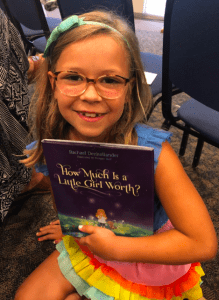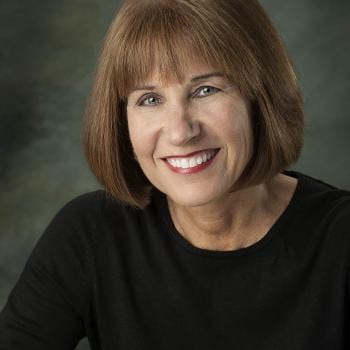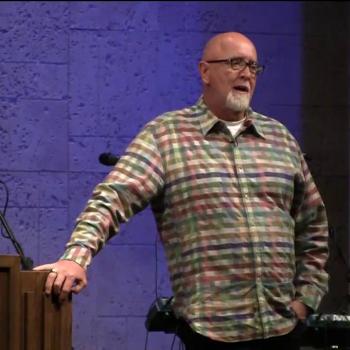Two big ones this year in Chicagoland, two big pastors the foundations of whose empires have been shaken. First it was Willow Creek and Bill Hybels, now it is Harvest Bible Chapel and James Macdonald.
I knew far more about the former than I do about the latter. Neither is specifically in view here. Instead, I speak about a theological and ecclesial problem: pastors and power. What we have in these, and far too many similar church situations is pastoral abuse of power. Today’s post is about power in the pastorate, not about any one pastor — but instead about all of powermongering pastors.
What do we learn when we think about the pastor and power problem? (We could think through this with 1 Kings 21, the story about Naboth and his Vineyard, so I have posted the text at the end. Powermongering always works in similar ways.)
Before we begin, a powermongering pastor is spiritually deformed and unformed. It’s a character issue; it’s a spiritual formation issue. A powermongering pastor is behind the problem of power in the pastorate. Here we go…
First, we need to recognize that it is a culture that empowers, supports, and is morally blind to power abuse. Such a culture has to be created over time. It doesn’t happen because a pastor wants it, though he (I’ll leave this post in the masculine) may well want it. Wanting it doesn’t create it; it takes more than the pastor.
It takes a pastor, some elders and leaders around the pastor, and some systems and structures and policies that emerge into a Power Culture: marked by centralization of power into the pastor’s office, the knowledge on the part of elders and deacons and leaders of stuff going on, the requirement of silence, the punishment of opponents and critics, the labeling of critics, the narrating of an alternative (fake) story of what is going on, the assignment of impure motives by those designated as opponents and the assumption of pure motives by the pastor and elders and leaders… I could go on, you know the story.
Second, what we have learned in studying power cultures in churches is this: churches need to know that the persona on the stage and behind the pulpit (the preaching pastor) is not the person behind closed doors or with his friends.
This is hard to make sense of if you are an ordinary pew sitter, but let’s begin there: far too many in churches where there is a Power Culture are pew sitters who equate the persona with the person. Only those who know the pastor well, and not many will, know the clarity of the difference. Personas are glorified, heroized and valorized; persons are sinners. That pastor, though drunk in a Power Culture, is not the persona.
Third, what happens when ugly and unbiblical and unethical and even immoral realities become known? Power Cultures can only be redeemed when the sin of the Power Culture and pastor is revealed.
Sometimes the sins can be known, and it is a sad reality — next point is coming into play here — that the elders and leaders don’t do due diligence here but often need outsiders to unmask the sin and reveal the persona for the person he is. Sometimes it is a disgruntled employee but these days it seems to be journalists and social media and bloggers. They are driven to this by what happens when the sin becomes known.
Fourth, this is a sad reality about churches: most of these churches stuck in a Power Culture tend to protect the church, its reputation, its ministries, and the finances needed to keep the boat floating. They believe the heroized persona because they don’t know the person, they trust the persona because the Power Culture has colluded to protect the persona and the church with its Power Culture.
Fifth, it happens that the truth becomes known inside and the church begins to want to tell the truth. What happens next? Sadly, churches tend to leak only small bits of information about the realities: some truth, some spin, more hidden than known. The small bits of sin are spun into a story that still protects and fails to confront the Power Culture and the persona.
What is needed is repentance, admission; what is not needed is the most common ploy: blame the leader, blame the system, and then move on as if it was someone else’s fault. The reality is that the Power Culture is not just the pastor but everyone participates in differing ways. (More about that some other day.)
Sixth, because the truth is only admitted in small bits, some more critics speak up. Often the church admits only what it has to admit and no more; the church often knows the sin at a far deeper level but since others don’t know the pervasive presence of sin the church chooses to tell more than it has to.
It is best when actual courageous elders, leaders — some former some current — admit the truth, but often they need to be pushed to tell the full truth. Then some journalists, bloggers and social media take the issue on. Only then does the truth come out, only then is the Power Culture unmasked and only then does the Persona become a person, a real sinner who needs deep repentance and formation.
Seventh, it is then at this time that the church faces a Y in the path: Will it pursue truth or protect the reputation? Will it turn the reality into a “season” or will it denounce the Power Culture and the Persona’s sinful ways? Will it denounce the elders and leaders who propped up the Power Culture? Will it turn back to basics, to the gospel about Jesus and start over?
Will it repent and admit complicity? will it confess collective responsibility?
Naboth and His Vineyard — Taken by Power-mongering King Ahab
1Kings 21:1 Later the following events took place: Naboth the Jezreelite had a vineyard in Jezreel, beside the palace of King Ahab of Samaria. 2 And Ahab said to Naboth, “Give me your vineyard, so that I may have it for a vegetable garden, because it is near my house; I will give you a better vineyard for it; or, if it seems good to you, I will give you its value in money.” 3 But Naboth said to Ahab, “The LORD forbid that I should give you my ancestral inheritance.” 4 Ahab went home resentful and sullen because of what Naboth the Jezreelite had said to him; for he had said, “I will not give you my ancestral inheritance.” He lay down on his bed, turned away his face, and would not eat.
1Kings 21:5 His wife Jezebel came to him and said, “Why are you so depressed that you will not eat?” 6 He said to her, “Because I spoke to Naboth the Jezreelite and said to him, ‘Give me your vineyard for money; or else, if you prefer, I will give you another vineyard for it’; but he answered, ‘I will not give you my vineyard.’” 7 His wife Jezebel said to him, “Do you now govern Israel? Get up, eat some food, and be cheerful; I will give you the vineyard of Naboth the Jezreelite.”
1Kings 21:8 So she wrote letters in Ahab’s name and sealed them with his seal; she sent the letters to the elders and the nobles who lived with Naboth in his city. 9 She wrote in the letters, “Proclaim a fast, and seat Naboth at the head of the assembly; 10 seat two scoundrels opposite him, and have them bring a charge against him, saying, ‘You have cursed God and the king.’ Then take him out, and stone him to death.” 11 The men of his city, the elders and the nobles who lived in his city, did as Jezebel had sent word to them. Just as it was written in the letters that she had sent to them, 12 they proclaimed a fast and seated Naboth at the head of the assembly. 13 The two scoundrels came in and sat opposite him; and the scoundrels brought a charge against Naboth, in the presence of the people, saying, “Naboth cursed God and the king.” So they took him outside the city, and stoned him to death. 14 Then they sent to Jezebel, saying, “Naboth has been stoned; he is dead.”
1Kings 21:15 As soon as Jezebel heard that Naboth had been stoned and was dead, Jezebel said to Ahab, “Go, take possession of the vineyard of Naboth the Jezreelite, which he refused to give you for money; for Naboth is not alive, but dead.” 16 As soon as Ahab heard that Naboth was dead, Ahab set out to go down to the vineyard of Naboth the Jezreelite, to take possession of it.
1Kings 21:17 Then the word of the LORD came to Elijah the Tishbite, saying: 18 Go down to meet King Ahab of Israel, who rules in Samaria; he is now in the vineyard of Naboth, where he has gone to take possession. 19 You shall say to him, “Thus says the LORD: Have you killed, and also taken possession?” You shall say to him, “Thus says the LORD: In the place where dogs licked up the blood of Naboth, dogs will also lick up your blood.”
1Kings 21:20 Ahab said to Elijah, “Have you found me, O my enemy?” He answered, “I have found you. Because you have sold yourself to do what is evil in the sight of the LORD, 21 I will bring disaster on you; I will consume you, and will cut off from Ahab every male, bond or free, in Israel; 22 and I will make your house like the house of Jeroboam son of Nebat, and like the house of Baasha son of Ahijah, because you have provoked me to anger and have caused Israel to sin. 23 Also concerning Jezebel the LORD said, ‘The dogs shall eat Jezebel within the bounds of Jezreel.’ 24 Anyone belonging to Ahab who dies in the city the dogs shall eat; and anyone of his who dies in the open country the birds of the air shall eat.”
1Kings 21:25 (Indeed, there was no one like Ahab, who sold himself to do what was evil in the sight of the LORD, urged on by his wife Jezebel. 26 He acted most abominably in going after idols, as the Amorites had done, whom the LORD drove out before the Israelites.)
1Kings 21:27 When Ahab heard those words, he tore his clothes and put sackcloth over his bare flesh; he fasted, lay in the sackcloth, and went about dejectedly. 28 Then the word of the LORD came to Elijah the Tishbite: 29 “Have you seen how Ahab has humbled himself before me? Because he has humbled himself before me, I will not bring the disaster in his days; but in his son’s days I will bring the disaster on his house.”

















